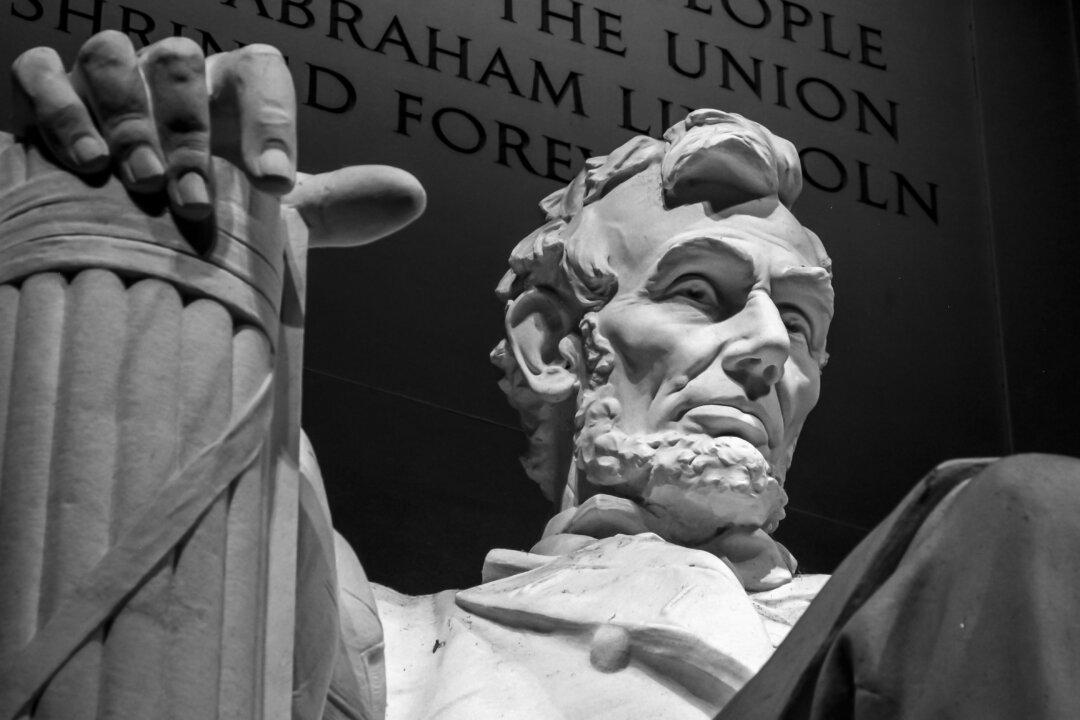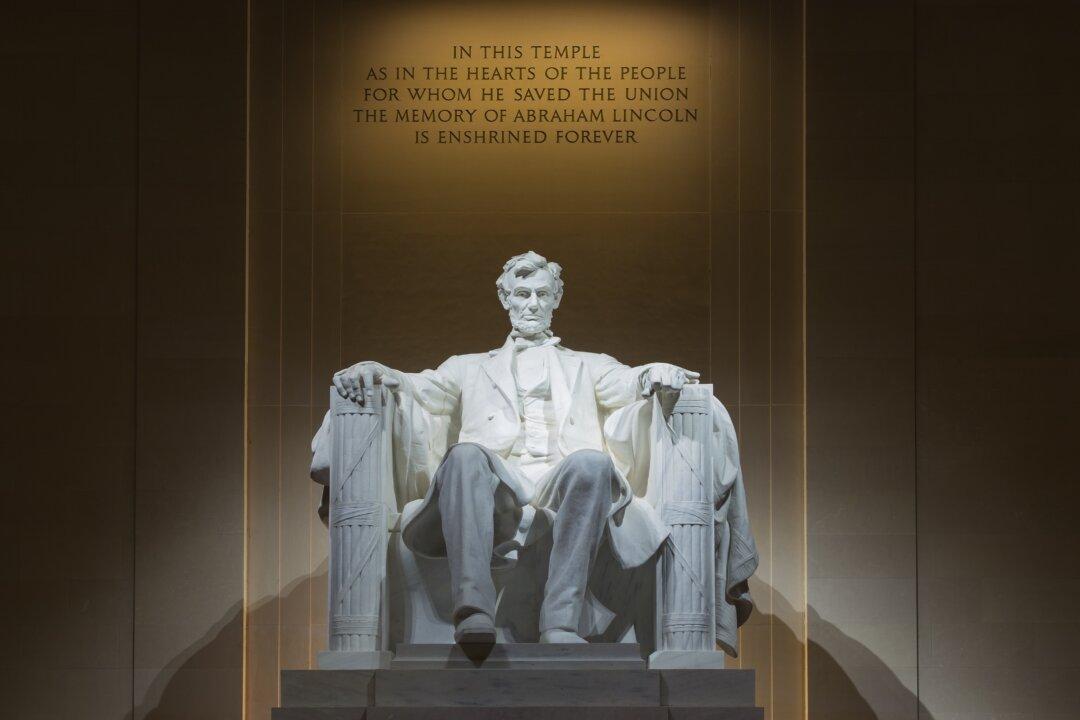The Purpose of Power
At what point then is the approach of danger to be expected? I answer, if it ever reach us, it must spring up amongst us. It cannot come from abroad. If destruction be our lot, we must ourselves be its author and finisher. As a nation of freemen, we must live through all time, or die by suicide.
—Speech to the Young Men’s Lyceum; January 27, 1838
We, even we here, hold the power and bear the responsibility. In giving freedom to the slave, we assure freedom to the free, honorable alike in what we give and what we preserve. We shall nobly save or meanly lose the last, best hope of earth.
—Message to Congress; December 1, 1862
When the white man governs himself that is self-government; but when he governs himself and also governs another man, that is more than self-government—that is despotism.
—Reply to Stephen Douglas; October 16, 1854
I do not mean to say that this general government is charged with the duty of redressing or preventing all the wrongs in the world; but I do think that it is charged with the duty of preventing and redressing all wrongs which are wrongs to itself.
—Speech at Cincinnati, Ohio; September 17, 1859
As I would not be a slave, so I would not be a master. This expresses my idea of democracy. Whatever differs from this, to the extent of the difference, is no democracy.
—Fragment; written circa August 1858
What I do say is, that no man is good enough to govern another man, without that other’s consent. I say this is the leading principle—the sheet anchor of American republicanism.
—Reply to Stephen Douglas; October 16, 1854
Those who deny freedom to others, deserve it not for themselves; and, under a just God, cannot long retain it.
—Letter to Henry L. Pierce, & Others; April 6, 1859
Negroes, like other people, act upon motives. Why should they do anything for us, if we will do nothing for them? If they stake their lives for us, they must be prompted by the strongest motive, even the promise of freedom. And the promise being made, must be kept.
—Letter to James C. Conkling; August 26, 1863
Yet notwithstanding all this, if the laws be continually despised and disregarded, if their rights to be secure in their persons and property, are held by no better tenure than the caprice of a mob, the alienation of their affections from the government is the natural consequence; and to that, sooner or later, it must come. Here then, is one point at which danger may be expected. The question recurs “how shall we fortify against it?” The answer is simple. Let every American, every lover of liberty, every well-wisher to his posterity, swear by the blood of the Revolution, never to violate in the least particular, the laws of the country; and never to tolerate their violation by others. As the patriots of Seventy-six did to the support of the Declaration of Independence, so to the support of the Constitution and laws, let every American pledge his life, his property, and his sacred honor; let every man remember that to violate the law, is to trample on the blood of his father, and to tear the charter of his own, and his children’s liberty.
—Speech to the Young Men’s Lyceum; January 27, 1838
We have, as all will agree, a free Government, where every man has a right to be equal with every other man. In this great struggle, this form of Government and every form of human right is endangered if our enemies succeed.
—Address to the 164th Ohio Regiment; August 18, 1864
The people ... have thus allowed this giant insurrec-tion to make its nest within her borders,—and this government has no choice left but to deal with it where it finds it. And it has the less regret, as the loyal citizens have in due form claimed its protection.
—Message to Congress; July 4, 1861
It is not merely for today, but for all time to come that we should perpetuate for our children’s children this great and free government, which we have enjoyed all our lives.
—Address to the 166th Regiment; August 22, 1864
Justified Power
The legitimate object of government, is to do for a community of people, whatever they need to have done, but cannot do, at all, or cannot, so well do, for themselves—in their separate, and individual capacities. In all that the people can individually do as well for themselves, government ought not to interfere.
—Fragment; written circa July 1854
If we shall constitutionally elect a President, it will be our duty to see that you submit. Old John Brown has been executed for treason against a State. We cannot object, even though he agreed with us in thinking slavery wrong. That cannot excuse violence, bloodshed and treason. It could avail him nothing that he might think himself right. So, if we constitutionally elect a President, and therefore you undertake to destroy the Union, it will be our duty to deal with you as old John Brown has been dealt with. We shall try to do our duty. We hope and believe that in no section will a majority so act as to render such extreme measures necessary.
—Speech given at Levenworth, Kansas; December 1859
Let us have faith that right makes might, and in that faith, let us, to the end, dare to do our duty as we understand it.
—Address at Cooper Institute; February 27, 1860
It is true, as has been said by the president of the Senate, that a very great responsibility rests upon me in the position to which the votes of the American people have called me. I am deeply sensible of that weighty responsibility. I cannot but know, what you all know, that without a name, perhaps without a reason why I should have a name, there has fallen upon me a task such as did not rest even upon the Father of his Country; and so feeling, I cannot but turn and look for that support without which it will be impossible for me to perform that great task. I turn then, and look to the great American people, and to that God who has never forsaken them.
—Speech to the State Legislature at Columbus, Ohio; February 13, 1861
We cannot have free government without elections; and if the rebellion could force us to forego or postpone a national election, it might fairly claim to have already conquered and ruined us.
—Reply to a spontaneous serenade; November 10, 1864
I am naturally anti-slavery. If slavery is not wrong, nothing is wrong. I cannot remember when I did not so think and feel, and yet I have never understood that the Presidency conferred upon me an unrestricted right to act officially upon this judgment and feeling. It was in the oath that I took, that I would, to the best of my ability, preserve, protect, and defend the Constitution of the United States. I could not take office without taking the oath. Nor was it my view that I might take an oath to get power, and break the oath in using the power.
—Letter to A. G. Hodges; April 4, 1984
When I came, on the 4th of March, 1861, through a free and constitutional election to fireside in the Government of the United States, the country was found at the verge of civil war. Whatever might have been the cause, or whosesoever the fault, one duty, paramount to all others, was before me, namely, to maintain and preserve at once the Constitution and the integrity of the Federal Republic. A conscientious purpose to perform this duty is the key to all the measures of administration which have been and to all which will hereafter be pursued. Under our frame of government and my official oath, I could not depart from this purpose if I would.
—Reply to the Working Men of Manchester, England; January 1863
But the proclamation, as law, either is valid or is not valid. If it is not valid, it needs no retraction. If it is valid, it cannot be retracted any more than the dead can be brought to life.
—Letter to James C. Conkling; August 26, 1863
(To be continued...)




